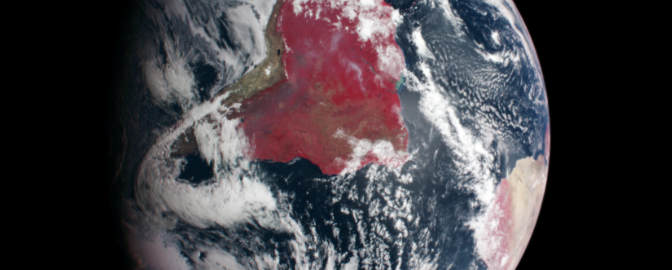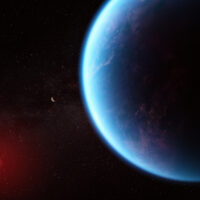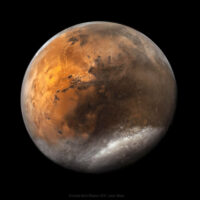Since 2002, Planetary Radio has visited with a scientist, engineer, project manager, advocate, or writer who provides a unique perspective on the quest for knowledge about our Solar System and beyond. The full show archive is available for free.
Search Planetary Radio
Author and historian of science Dava Sobel talks about her many wonderful books with The Planetary Society’s Mat Kaplan. Dava recently received the Society’s Cosmos Award.
Join host Sarah Al-Ahmed and Mark McCaughrean, adjunct scientist at the Max Planck Institute for Astronomy, for a tour of “111 Places in Space That You Must Not Miss”, a cosmic travel guide to the Universe.
Astronomers have discovered a new interstellar comet, 3I/ATLAS, the third object ever seen entering our Solar System from another star. We speak with Bryce Bolin, research scientist at Eureka Scientific, about what makes this visitor unique and what it can teach us about other worlds.
Erin Flynn-Evans, director of the Fatigue Countermeasures Laboratory at NASA Ames Research Center, shares how sleep science is helping astronauts stay healthy in space and prepare for future missions to Mars.
New Horizons Principal Investigator Alan Stern joins us to celebrate the Pluto flyby’s 10th anniversary, with updates from planetary scientist Adeene Denton and Planetary Society Director of Government Relations Jack Kiraly. Plus, a look at Arrokoth in What’s Up with Bruce Betts.
The Rubin Observatory releases its first public images, revealing millions of celestial objects. We explore the science with Stephanie Deppe, astronomy content strategist at Rubin Observatory.
Dava Sobel receives The Planetary Society’s Cosmos Award for her extraordinary storytelling about science and discovery. We celebrate her work, hear from Bill Nye, and share updates on space policy and science communication.
Space journalist Sarah Cruddas shares her journey from astrophysics to storytelling, exploring how journalism can make space exploration more accessible and meaningful.
We tackle the biggest questions about NASA's value, space exploration, and why public investment matters. Join us for a Q&A with Casey Dreier and Ambre Trujillo, and a space policy update with Jack Kiraly.
A Soviet-era Venus probe, Kosmos 482, spent 53 years in Earth's orbit before crashing back to the planet. Seismologist Ben Fernando explains its history, reentry, and how seismic technology could help track space debris.
Explore the atmosphere of TOI-270 d with planetary geochemist Chris Glein as he unravels the secrets of this distant sub-Neptune using JWST data and geochemical modeling.
No one person knows how to build a spaceship. What happens to NASA’s collective knowledge when thousands of employees lose their jobs?
Astrokobi joins Sarah Al-Ahmed to explore the rise of a new generation of space communicators. Plus, updates on NASA’s science budget and the confirmation process for the next NASA administrator.
Join us aboard the RMS Queen Mary as we celebrate 45 years of The Planetary Society at our Cosmic Shores Gala, featuring reflections from Bill Nye, Bethany Ehlmann, Jennifer Vaughn, and more.
NASA's science programs face a proposed 47% budget cut. We break down what's at risk and how you can take action to help protect space exploration.
Why is Mars red? A new study led by Brown University’s Adomas Valantinas points to ferrihydrite, not hematite, revealing a wetter past and new clues about the Red Planet’s potential to support life.
The space sector is data-rich but insight-poor. Jack Kuhr of Payload talks about how he turns raw numbers into real narratives.
Join Sarah Al-Ahmed and Casey Dreier for a special live recording of Planetary Radio at the Johns Hopkins University Bloomberg Center in Washington, D.C., immediately following The Planetary Society’s Day of Action.
We explore bold ideas from the Mars Innovation Workshop and uncover why NASA’s decision to dissolve key advisory offices is raising concerns across the space community.
A reported 50% cut to NASA’s science budget threatens to shut down missions, halt new discoveries, and devastate scientific space exploration. This week, we break down the fight ahead with The Planetary Society’s space policy team and explore how grassroots advocacy can help protect the future of space science.


 Explore Worlds
Explore Worlds Find Life
Find Life Defend Earth
Defend Earth




















